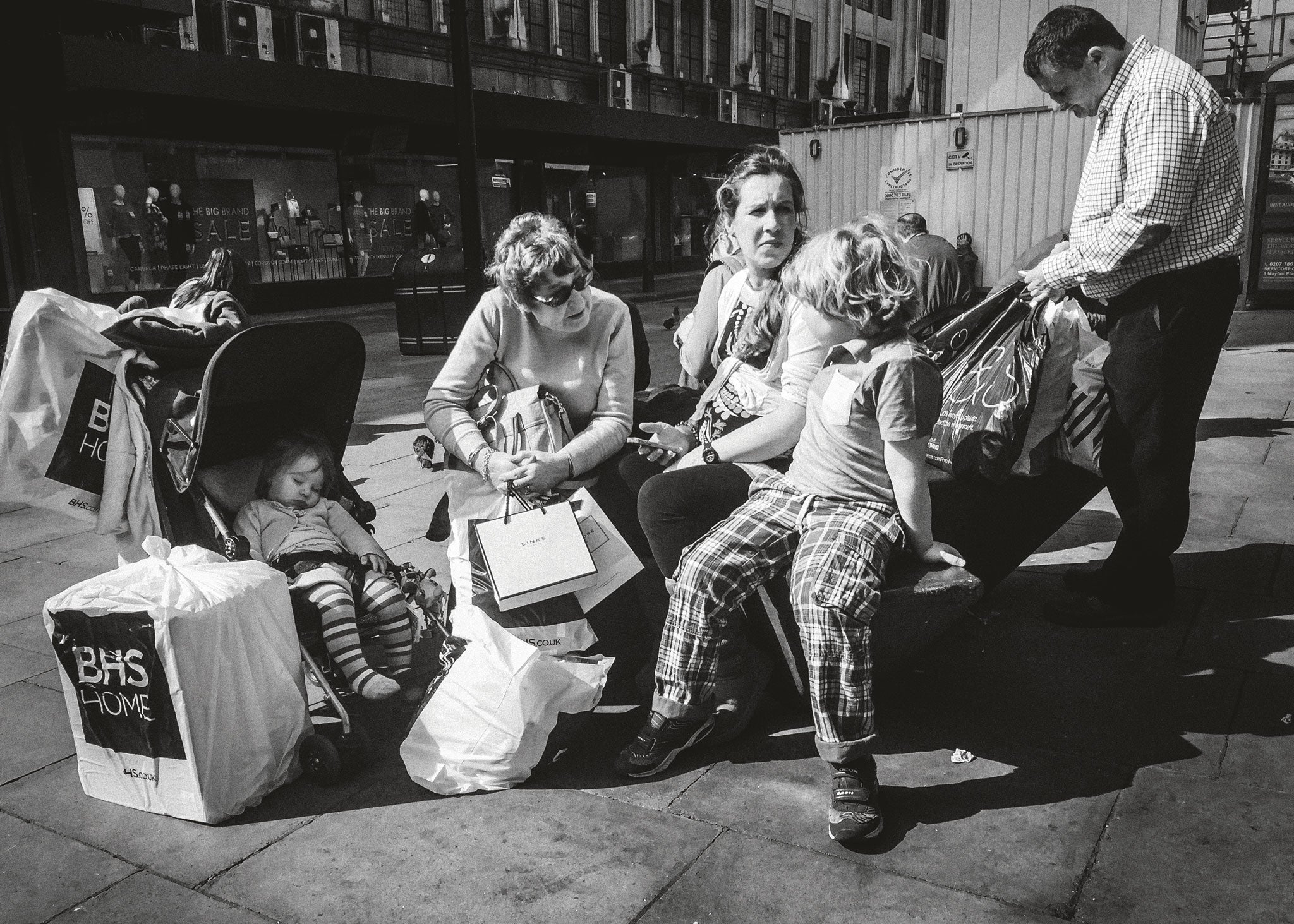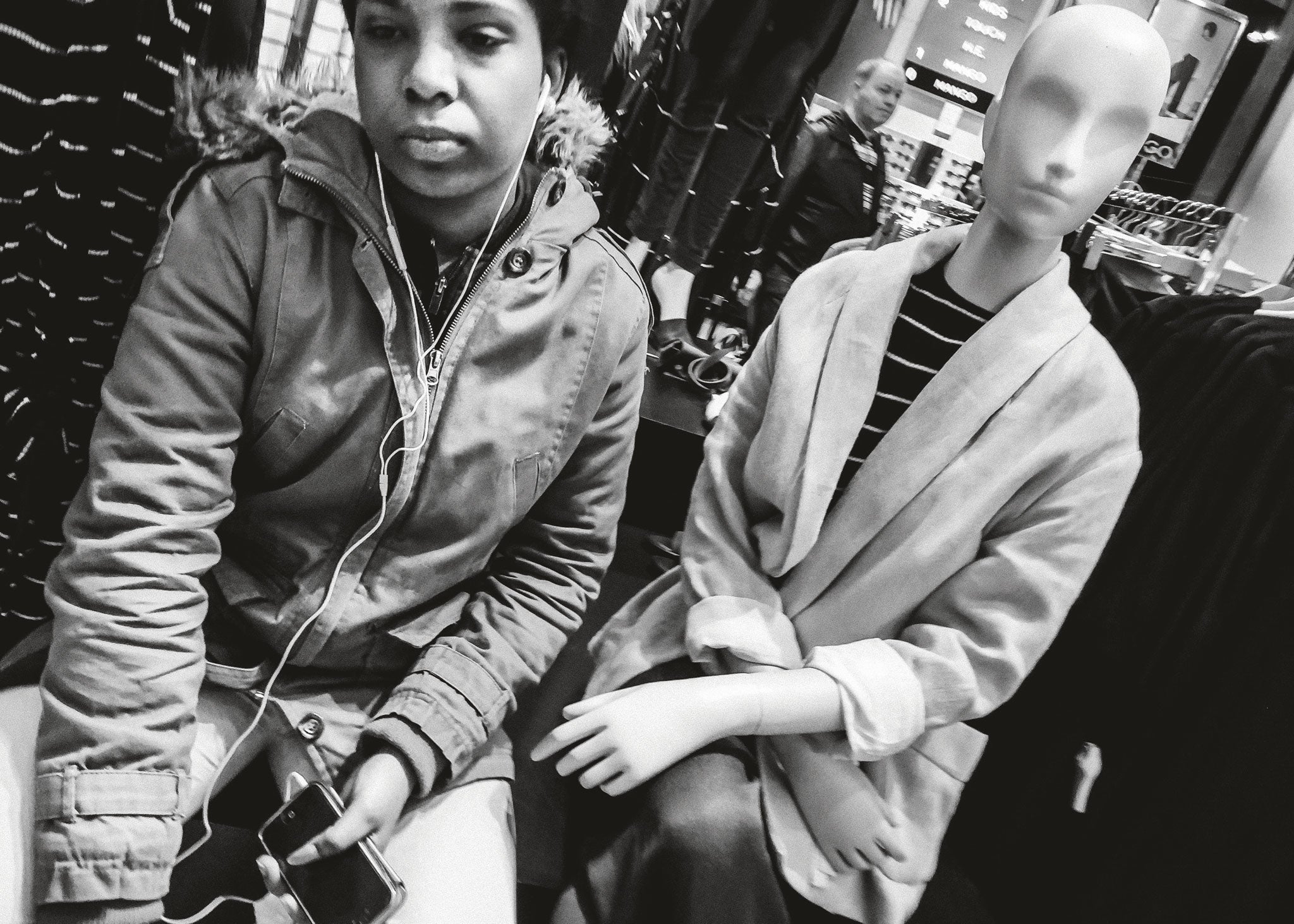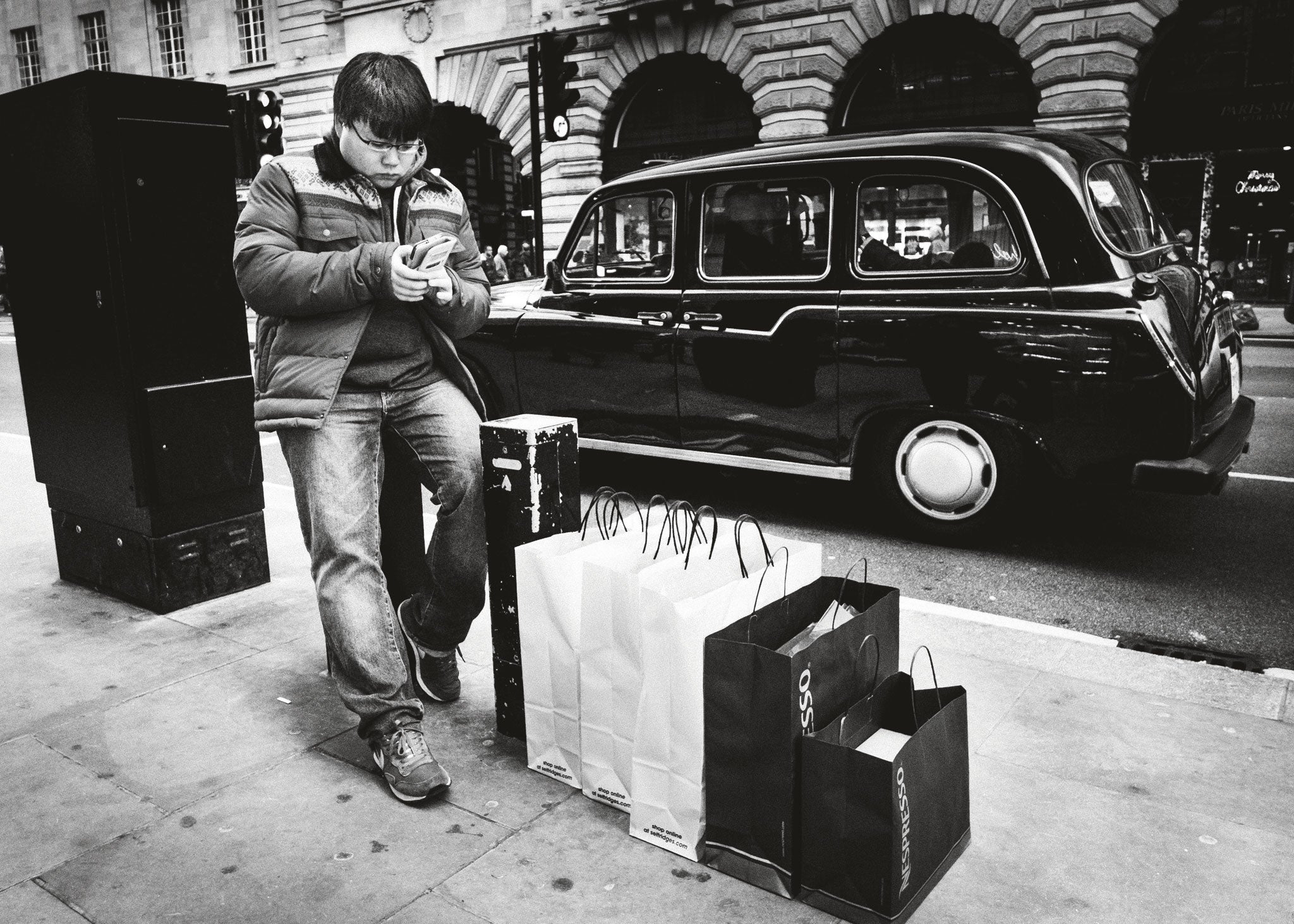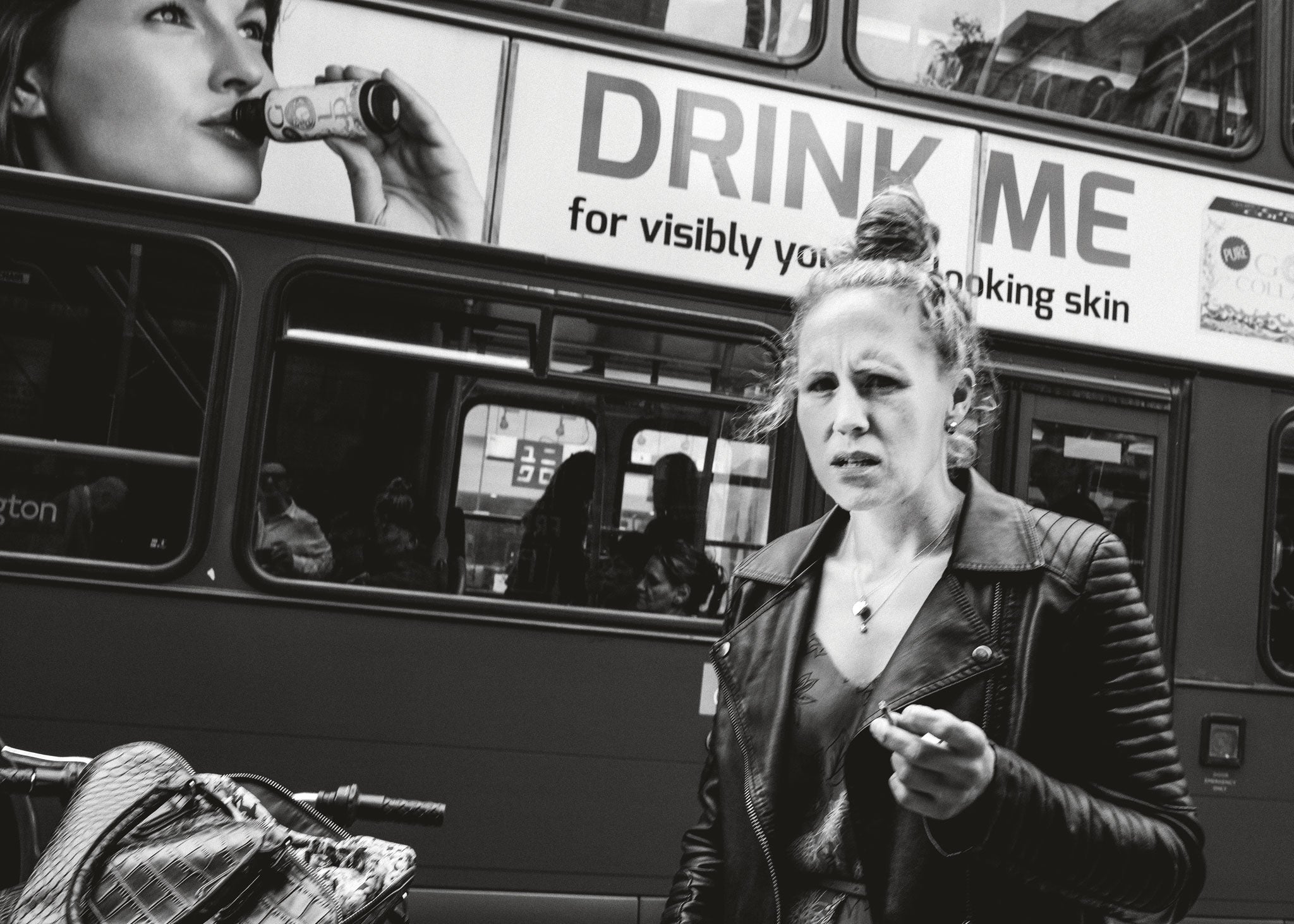Alex Schneideman’s images chart what happens to our souls when we shop
Want More features images of fellow-sufferers in a peculiar modern circle of hell
, writes Harry Eyres

Your support helps us to tell the story
From reproductive rights to climate change to Big Tech, The Independent is on the ground when the story is developing. Whether it's investigating the financials of Elon Musk's pro-Trump PAC or producing our latest documentary, 'The A Word', which shines a light on the American women fighting for reproductive rights, we know how important it is to parse out the facts from the messaging.
At such a critical moment in US history, we need reporters on the ground. Your donation allows us to keep sending journalists to speak to both sides of the story.
The Independent is trusted by Americans across the entire political spectrum. And unlike many other quality news outlets, we choose not to lock Americans out of our reporting and analysis with paywalls. We believe quality journalism should be available to everyone, paid for by those who can afford it.
Your support makes all the difference.We talk a great deal about retail therapy but not so much about the kind of retail environment that might drive people to seek therapy. Looking at Alex Schneideman's collection of photographs in Want More, I found that the words that came into my mind were from a sonnet by William Wordsworth, written more than two hundred years ago: "The world is too much with us; late and soon, / Getting and spending, we lay waste our powers: / Little we see in Nature that is ours; / We have given our hearts away, a sordid boon!"
Wordsworth was writing near the start of industrial capitalism, with the freshness and clarity of vision of someone brought up in the hills and valleys of the English Lake District seeing and analysing a new and alien phenomenon. We are now living through what many consider to be the late phase of capitalism, in which consumption has become global and inescapable. Late capitalism is a vast engine of production of ever- more sophisticated goods, designed to be replaced at ever shorter intervals. This requires an ever-expanding army of consumers to keep it running … and expanding, and expanding. As we are so immersed in it, we rarely take the opportunity to stand back and reflect on the nature of the beast, or more especially on what it may be doing to us.
Taking a step back to reflect and observe is what Schneideman has done in these photographs. It must have required a stubborn determination, matching the grim compulsion to buy and consume that is apparent on so many of the faces he portrays. Anyone who has walked down a busy shopping street must know how difficult it is to decelerate even a fraction, let alone pause or stop completely. Such a move feels like an act of civic resistance or rebellion, and is barely if at all tolerated by the onrushing shoppers.
Somehow Schneideman has found a way to "stand and stare" (as another poet, the Welshman W H Davies, put it in his 1911 poem "Leisure", itself influenced by Wordsworth's sonnet). This in itself seems admirable. But he has gone further and managed to take a series of memorable photographs that capture the essence of the scene – rather like photographing a speeding river from a canoe as it traverses white-water rapids.
Perhaps his task is even more difficult, given that what needs to be seized is something rather elusive, which the enigmatic faces both reveal and conceal.

What is this elusive essence? Taking my cue from the sympathetic Mexican doctor Vigil (and using his idiosyncratic English) in Malcolm Lowry's great novel of spiritual descent Under the Volcano, I could term it is what "used to be call: soul". It is unfashionable in these days to speak of the soul: where could such an old-fashioned organ be hiding in a contemporary brain, hard-wired (as the fashionable dehumanised metaphor has it) for getting and spending? I will try to explain what I mean.
First, though, it may be helpful to point out what Schneideman is not doing. What I have said so far may sound like an old-fashioned Marxist critique. Consumers are deluded, guilty of false consciousness, drinking deep from the new opiate of the people, which is not religion but shopping. Or shopping as religion – perhaps the first religion in history to unbind people from each other and even from themselves. But Schneideman actually conveys far more solidarity with those he portrays than criticism of them. These are overwhelmingly sympathetic photographs, images of fellow-sufferers in a peculiar modern circle of hell.
Where is the evidence for what I am saying? It is written on the faces. Here we need what I might term a phenomenology of alienation. Now alienation may sound like, and in fact is, another Marxist concept. Marx developed this theory in his Economic and Philosophic Manuscripts of 1844 to describe the conditions of work, and the worker, under industrial capitalism. When labour is alienated – that is to say, when it does not belong to man's essential being – the worker "does not feel content but unhappy, does not develop freely his physical and mental energy but mortifies his body and ruins his mind". Marx went even further and stated that under the capitalist mode of production, man is alienated from his "species essence" or Gattungswesen. This "species essence" is "free conscious activity".
What is inscribed on these faces can be described in a preliminary and far from exhaustive list, as follows: sullen resignation; strain; sour dissatisfaction; sadness; boredom; preoccupation; distraction; sheer misery; panic; grim determination; utter exhaustion; passivity; dreamy escapism; regression.

There is very little there of free conscious activity, let alone relaxation or joy. In one photograph, in which the eponymous words "want more", an imperative as relentless as the hounds of hell, appear on the side of a passing bus, a father appears to push his suffering teenage children ahead of him, as if conscripting them into an invisible army of future consumers. His expression is set hard as stone. His daughter and son frown; the son seems on the verge of tears.
In another image, two women are seen beneath a shiny brass plate showing the numbers 234 (a series that could continue for ever). One struggles with a scarf, as if caught up in something that might throttle her; the other simply leans against the unyielding stone wall, her eyes closed, her mouth open: not so much spending as utterly spent.
Part of Schneideman's skill in these photographs is a gift for serendipity – that is, for the chance coming together of random elements that contain a hidden logic. Words inscribed on shop fronts or passing buses seem to reflect, often ironically, on the experience of the human subjects. A desperate-looking woman with her modest purchases contained within a small transparent bag is captured beneath a shop logo of which the only visible word is "care". (It is probably Mothercare). Human care, care for suffering humanity, simple care for oneself is exactly what is lacking. An elegant but strained-looking woman with an oblique, haunted look happens to coincide with a bus that has the words "How much? How long?" written on an advertising panel. Somehow these words seem to rearrange themselves as "how much longer?". How much longer can I take it, can we all take it, can the world and the planet take it?

If I had to choose one word to sum up the experience and the emotion conveyed in this series, it would be strain. Everyone seems to be strained, and straining, and the strain appears to come both from within and without. There is the internal drive, the product not of free conscious will but of desire reconfigured as fierce superego. Yet this is not just an individual superego but a collective one, the slave-driver of our decadent imperium, cracking the whip that says "Want more!"
The mobile phone (a motif running through the series) becomes a symbol of this external strain, a device that merely cranks up the pressure rather than offering relief or balm. And beyond all that there is the sense of a whole system, even a whole planet, under strain.
The high street and shopping mall are symbols of an artificial environment that has turned against both nature (as Wordsworth saw so presciently) and humanity, a hard, concreted-over hell with no relief, not a tree, not a flower, not a bird. All the same I find something inspiring and even heartening in Want More. The alienation the series portrays, sometimes with dark humour, is the negative of a positive: all the unused powers of humanity, the potential for joy, love, care, creativity, and altruism, which somehow shines out of the suffering. If people had no souls, their faces would not show such resistance; they would simply go with the inhuman flow.
Essay and photographs taken from 'Want More', by Alex Schneideman, to be published by Art/Books on 26 October
Join our commenting forum
Join thought-provoking conversations, follow other Independent readers and see their replies
Comments